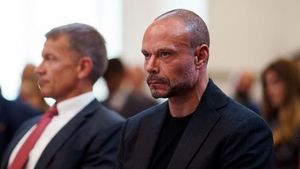On February 23, 2025, German citizens will head to the polls for the highly anticipated Bundestag election, marking a significant moment for the country with new voting regulations effective for the first time. Every eligible voter will have the chance to cast two votes, known as Erststimme and Zweitstimme, impacting the makeup of the Bundestag.
The Bundestag election involves direct representation through the Erststimme, where voters choose candidates from their electoral district. Each district, of which there are 299, includes approximately 250,000 residents. The candidate with the most Erststimmen secures the direct mandate for their district, allowing them to represent the local interests within the federal parliament. "Die Erst- und Zweitstimme erklärt," notes RUHR24, highlighting the necessity for voters to understand both votes thoroughly before heading to the polls.
Importantly, under the new election law, the direct mandates may not always correspond to the candidates with the highest number of votes. Only if their party obtains enough seats through the Zweitstimme can these successful candidates enter the Bundestag. This change has raised concerns and discussions around the effectiveness of direct representation, as each party's ability to gain seats is now intricately linked to the overall support shared among all voters.
The Zweitstimme, printed on the right side of the ballot, is equally significant. This vote elects parties and determines their representation based on the percentage of votes they receive. For example, if a party receives 30% of the Zweitstimmen, they should be allocated approximately 30% of the Bundestag seats. This system promotes party proportionality, and voters must be aware of its increased importance against the backdrop of the new election rules. "Die wichtigste Änderung: Die Zweitstimme gewinnt noch mehr an Bedeutung," RUHR24 reports, emphasizing the shift toward this vote being the deciding factor for party strength.
Voters are not required to vote for only one party across both votes. Many have taken to what is known as 'Stimmensplitting' — casting their Erststimme for one party and their Zweitstimme for another, which has become more popular. Action taken by about 25% of voters during the last election indicates growing diversions from strict party loyalty.
When assessing the voting procedure, it is pivotal to recognize the necessity of following the stipulations for marking ballots. Mistakes can lead to invalid votes, which organizers strive to minimize. Only one cross is permitted per section on the ballot; multiple crosses render the vote invalid. Writing or drawing on the ballot can also negate it, stressing the importance of proper practice on voting day.
If voters find they have made errors — for example, mistakenly marking the wrong candidate — they can request a new ballot. But they must first destroy the incorrect one before election officials. Awareness of these voting procedures is encouraged to maximize engagement during this significant democratic exercise.
This election serves not only as a period for citizens to express their opinions but also reflects the changing political landscapes and voters' preferences. The incorporation of new rules is intended to streamline the electoral process and accurately reflect the citizens' desires within their representatives.
While the German people will not directly elect their Chancellor through the voting process, it is important to recognize how the Bundestag's composition influences who can assume this pivotal office following the election. Post-election, the Bundestag will engage in negotiations to form the government, typically based on the party or coalition's capacity to garner sufficient support numbers. This structure shapes both the effectiveness and direction of future policies.
Voter participation is instrumental to uphold democracy, making it imperative for the electorate to be knowledgeable about the voting process, from recognizing their options to the nuances of casting votes accurately. Successful outcomes rest upon each citizen's active engagement within this system, particularly as changes manifest under the new voting laws.
With the federal election rapidly approaching, letting nothing go amiss on voting day is invaluable. An informed voter is empowered to contribute meaningfully to Germany's political future.



